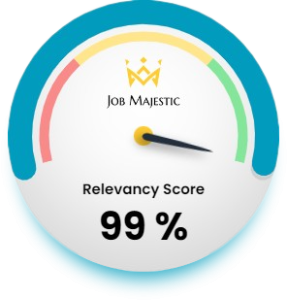Congratulations on understanding the popular types of job interviews in Malaysia! The next step is to prepare for the interview session itself.
There is much more to interview questions than just “Tell me about yourself” and “Why should we hire you?”. If you need help with preparing for the various types of interview questions you will face next, you’re at the right place.
Common Types of Interview Questions
1. Verification Questions
This type of question includes “What are you applying for?” and “How many years of work experience do you have?”. It may seem weird that hiring managers are asking obvious questions. Haven’t they read your resume?
Before you judge too soon, know that verification questions are used to verify the information presented in your cover letter and resume. These easy-going questions can also help to calm your nerves and build confidence before facing the challenging questions later on.
2. Situational / Hypothetical Questions
This type of question focuses on hypothetical situations to test your ability to handle specific scenarios that you would potentially face in the new job.
You’ll be asked questions such as “What would you do in this challenging situation?” or “What if this goes wrong?”. These questions can be difficult to answer. After all, how can you provide the “right” answer if you have never faced these situations before?
Hiring managers are actually testing your ability to think on the spot. Do not stay silent and start daydreaming. Prove that you are able to stay calm under pressure, and focus on the decision-making process that will overcome any sticky situation you’ll be facing in the future.
3. Behavioral / Opinion Questions
On the other hand, behavioural questions focus on the past instead of the unknown future. Instead of the “What if” questions, you’ll face questions such as “How did you handle conflict with your co-workers?” or “How did you turn challenges into opportunities in the past?”.
These are questions on how you handled certain situations in the past and how results or goals were met. You will have to elaborate on your thought process and provide specific examples to support your past decisions.
By asking these questions, hiring managers will get to understand your personality, your work ethics, stress management and more. They can then use your past behaviours to gauge your future decisions and results.
4. Competency / Capability Questions

During an interview, hiring managers will most likely require you to elaborate on the skills and qualities that you have written in your resume. This is where you’ll need to provide specific examples of how you’ve demonstrated these skills in your past experiences.
These questions are important for hiring managers to determine whether you are truly as capable as the person you claimed to be. It determines whether your abilities match those required by the job position and company.
Typically, you’ll be asked to explain “How you found a creative approach to a tricky problem”, “How you reduced costs and improved profitability”, and so on. The answers are usually technical and supported by real data and evidence.
5. Brain Teaser / Puzzle Questions
These are problem-solving questions typically without a right or wrong answer. The objective is not emphasised on the final answer, but hiring managers are more interested in the process of solving these questions, such as the Mathematical formula you use and so on.
You may come across questions such as “How many elephants would fit in the Titanic” or “How would you divide a cake by cutting it in circles?”. You’ll need to devise creative strategies to answer these questions under pressure.
Think less, talk more. Stay calm and walk the interviewer through the problem. Request for more information if you need it, talk about how you’ll approach the problem. Present your assumptions, thought processes and decisions in a convincing manner.
6. Case Study Questions

Case study questions are popular in recent years. It is a quick and easy way for hiring managers to filter out candidates who did not possess the amount of knowledge that the job requires or even those who did not do enough research before attending the interview.
Hiring managers do so by giving a business scenario related to the company or industry, such as “How can this company become a global leader by 2025?” Candidates are required to present innovative ways to solve the scenario using proper analysis and examples.
To ace the case study questions, you must analyse the business issues using a logical framework, address business opportunities, demonstrate industry knowledge and present effective solutions that could be immediately deployed.
7. Trap Questions
Sometimes, you may be asked questions such as “What’s your biggest fault?” or “Tell me about a time you screwed up”. It may seem like these were set up to expose your biggest weaknesses. While this is not entirely false, you don’t actually have to fall for it.
Hiring managers want to see how honest and self-aware you are. There are two things that you should NOT do. Firstly, do NOT be overly honest. Saying things like “I’m just demotivated” or “I overly procrastinate” is not the way to go.
Secondly, do NOT be overly perfect. No one is. This could leave a bad impression that you’re being dishonest or that you don’t self-reflect much. Instead, bring up a minor fault, explain your learnings and future steps to improve yourself.
8. Creative Questions

You may have encountered questions such as “What is your spirit animal?” and “What colour best describes you?”. These questions often appear out of nowhere during the interview, plus they are so unique that you do not have an answer prepared before the interview.
That’s exactly what these questions are for. The ultimate objective is to test your ability to think on your feet and if you can come up with something original on the spot. Again, you do not have to worry about the right or wrong answer.
Our Final Advice
We hope that you’ll have a better understanding of the common types of interview questions in Malaysia. With this guide, you’ll be able to make better preparations on answering any type of interview questions during a job interview, even the weird ones.
Before attending any types of interview questions, make sure that you do proper research on the job position and company. Then, personalise your answers to position yourself as the perfect candidate for any job in Malaysia.
Read the Chinese version here: 8 种最常见的面试问题类型







